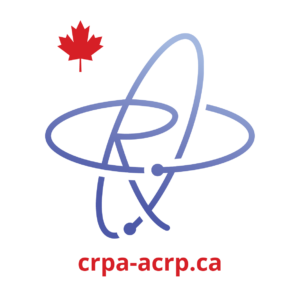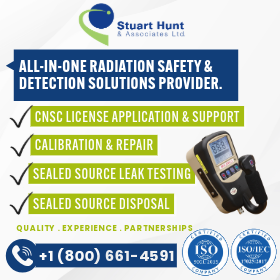The 64th session of the United Nations Scientific Committee on the Effects of Atomic Radiation (UNSCEAR) / Soixante-quatrième rencontre du comité scientifique des Nations unies sur les effets de l’exposition aux rayonnements ionisants (UNSCEAR)
Résumé
La 64e rencontre du comité scientifique des Nations unies sur les effets de l’exposition aux rayonnements ionisants (UNSCEAR) a eu lieu au Vienna International Centre, à Vienne, en Autriche, du 28 mai au 2 juin 2017. UNSCEAR est le comité des Nations unies qui a pour mandat d’évaluer les expositions aux rayonnements, ainsi que leurs effets sur la santé humaine et sur l’environnement.
La délégation canadienne de cette année est composée d’employés de la Commission canadienne de sûreté nucléaire (CCSN), de Santé Canada, et d’Action Cancer Ontario.
On a approuvé la publication d’un important document lors de cette 64e séance : Epidemiological Studies of Cancer Risk Due to Low-Dose-Rate Radiation from Environmental Sources (Études épidémiologiques quant au risque cancérogène d’une exposition à un rayonnement de faible intensité provenant de sources environnementales). UNSCEAR travaille également sur trois autres documents dont la publication est prévue en 2019 :
- Selected Evaluations of Health Effects and of Risk Inference Due to Radiation Exposure (Sélection d’évaluations quant aux effets sur la santé et quant à l’inférence au risque provoqués par une exposition au rayonnement)
- Lung Cancer from Exposure to Radon and to Penetrating Radiation (Cancer des poumons causé par une exposition au radon et au rayonnement pénétrant)
- Biological Mechanisms Influencing Health Effects from Low-Dose Radiation Exposure (Mécanismes biologiques entraînant des effets sur la santé qui proviennent d’une faible exposition au rayonnement)
Cette année, tout comme en 2015 et en 2016, nous avions prévu une activité en marge de la rencontre. Cette activité comportait deux présentations liées aux répercussions de l’accident de la centrale nucléaire de Fukushima-Daiichi.

The 64th session of United Nations Scientific Committee on the Effects of Atomic Radiation (UNSCEAR) took place at the Vienna International Centre, Vienna, Austria, from May 28 to June 2, 2017. UNSCEAR is the United Nations committee responsible for assessing exposures to radiation and effects on human health and the environment.
This year the Canadian delegation was made up of staff from the Canadian Nuclear Safety Commission (CNSC) (Patsy Thompson acting as Canada’s representative to UNSCEAR), Health Canada (Jing Chen acting as alternate and Ruth Wilkins acting as advisor), and Cancer Care Ontario (Paul Demers, also acting as advisor). Patsy Thompson is currently a vice-chair of UNSCEAR; her two-year term ends in December 2018.
An important document was approved for publication at the 64th session: Epidemiological Studies of Cancer Risk Due to Low-Dose-Rate Radiation from Environmental Sources. The document reviews epidemiological studies (including dosimetry and bio-dosimetry where available) of residents exposed to discharges from the Mayak Complex and of residents exposed to Co-60 contaminated buildings in Taiwan, China. The document also reviews epidemiological studies of natural background radiation exposures in Karunagappally, Kerala, India, and in Yangjian, China.
Through member states, UNSCEAR is collecting data on exposures of workers and patients to ionizing radiation. Ruth Wilkins and Jing Chen are Canada’s national points of contact for this project. Their role is to facilitate collection of Canadian data and its submission to the UNSCEAR Secretariat.
UNSCEAR is also working on three documents that are expected to be finalized in 2019:
- Selected Evaluations of Health Effects and of Risk Inference Due to Radiation Exposure
- Lung Cancer from Exposure to Radon and to Penetrating Radiation
- Biological Mechanisms Influencing Health Effects from Low-Dose Radiation Exposure
Jing Chen is a member of the Radon Expert Group established by UNSCEAR to lead the project on lung cancer from exposure to radon and to penetrating radiation. The Expert Group started its work in early 2017.
This year, as in 2015 and 2016, there was a “side event” consisting of two presentations related to the impacts of the Fukushima Daiichi nuclear power plant accident. The first presentation, on risk analysis and risk perception, was by staff of the Fukushima Medical University. The other presentation, on radiocesium in the agricultural environment and associated internal doses, was by staff of the Institute of Environmental radioactivity, Fukushima University. As part of its future program of work, UNSCEAR is considering a proposal to update its 2013 report on the consequences of the Fukushima Daiichi nuclear power plant accident.
 Patsy Thompson
Patsy Thompson
Patsy Thompson is the director general of the Directorate of Environmental and Radiation Protection and Assessment at the Canadian Nuclear Safety Commission (CNSC). She has been representative of Canada to UNSCEAR since 2014.


 Patsy Thompson
Patsy Thompson

